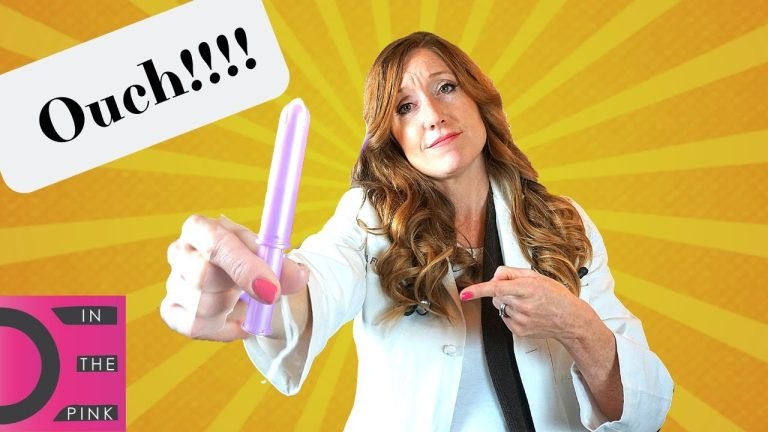Understanding Period Pain: Why Does My Vagina Hurt During Menstruation?

Have you ever wondered why your vagina hurts when you're on your period? Many women experience discomfort and pain in their vaginal area during menstruation, and there are several reasons why this may occur. From cramping and bloating to hormonal changes and inflammation, there are various factors that can contribute to vaginal discomfort during your period. In this article, we will explore the common reasons why your vagina may hurt during menstruation and provide tips on how to alleviate the discomfort.
Is it normal for my privates to hurt on my period?
It's not uncommon to experience discomfort or pain in your private area during your period. The vulva, which includes the outer and inner labia, can be particularly sensitive during this time, leading to symptoms like itching or discomfort. It's important to pay attention to your body and talk to a healthcare professional if you have concerns about your menstrual health.
What is the reason for the pain experienced by a girl when she is on her period?
Many women experience discomfort and pain during their menstrual period due to the natural process of the uterus contracting to expel its lining. This process is triggered by hormonelike substances called prostaglandins, which are also involved in pain and inflammation. Higher levels of prostaglandins are associated with more severe menstrual cramps, leading to the discomfort and pain that many women feel during this time.
The reason why it hurts when a girl is on her period is due to the uterus contracting to expel its lining. This process is triggered by hormonelike substances called prostaglandins, which also play a role in pain and inflammation. Higher levels of prostaglandins are associated with more severe menstrual cramps, leading to the discomfort and pain that many women experience during this time.
Is it normal for your area to hurt on your period?
It is common for many women to experience discomfort or pain in their pelvic area during their period. This may include cramping, stomach pain, lower back pain, and even pain in the legs. The pain is caused by higher levels of natural chemicals in the body, which can lead to contractions of the uterus, bowel, and blood vessels. It is important to speak with a healthcare provider if the pain is severe or interfering with daily activities.
Overall, period pain is a normal part of the menstrual cycle for many women. However, if the pain is severe and affecting daily life, it is important to seek help from a healthcare provider.
Unraveling the Mystery: The Science Behind Menstrual Pain
Unraveling the Mystery: The Science Behind Menstrual Pain
Menstrual pain, also known as dysmenorrhea, affects millions of women worldwide, yet the science behind this common phenomenon remains a mystery to many. Recent research has shed light on the biological mechanisms at play during menstruation, revealing that prostaglandins, hormone-like compounds, are the primary culprits behind the intense cramping and discomfort. These prostaglandins cause the uterus to contract, leading to the familiar throbbing pain experienced during menstruation. As scientists continue to unravel the complexities of menstrual pain, understanding the underlying science can empower women to seek more effective treatments and support for this natural, yet often debilitating, aspect of their reproductive health.
Empower Yourself: Managing and Alleviating Period Pain
Are you tired of suffering through unbearable period pain every month? It's time to take control of your menstrual health and empower yourself to manage and alleviate your discomfort. From regular exercise and a healthy diet to relaxation techniques and over-the-counter pain relief, there are numerous ways to combat period pain and reclaim your well-being. By educating yourself about the causes of menstrual discomfort and implementing proactive strategies, you can take charge of your menstrual health and experience relief from your symptoms.
Empower yourself to overcome period pain by exploring alternative therapies such as acupuncture and herbal remedies, which can offer natural relief without the side effects of traditional medications. Additionally, consider tracking your menstrual cycle and symptoms to identify patterns and triggers, allowing you to better anticipate and manage your discomfort. By adopting a holistic approach to managing period pain and seeking support from healthcare professionals, you can empower yourself to take control of your menstrual health and live a more comfortable and fulfilling life. Don't let period pain hold you back any longer – it's time to proactively manage and alleviate your symptoms to achieve a happier and healthier menstrual experience.
In conclusion, understanding the reasons behind vaginal discomfort during menstruation is crucial for women's reproductive health. By recognizing the potential causes, such as menstrual cramps, endometriosis, or infections, individuals can take proactive steps to manage their symptoms and seek necessary medical care. It is important for women to prioritize their health and seek professional guidance if they experience persistent or severe pain during their menstrual cycle. With knowledge and support, women can empower themselves to manage and alleviate discomfort, ultimately improving their overall well-being.
